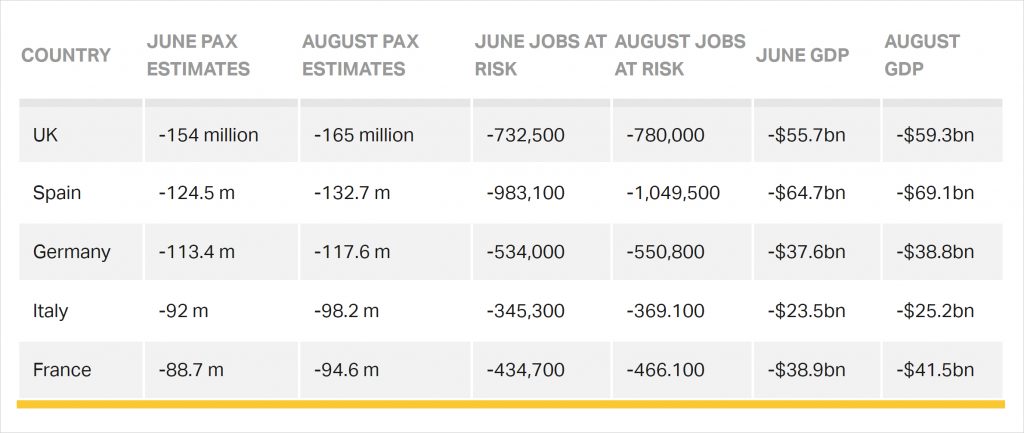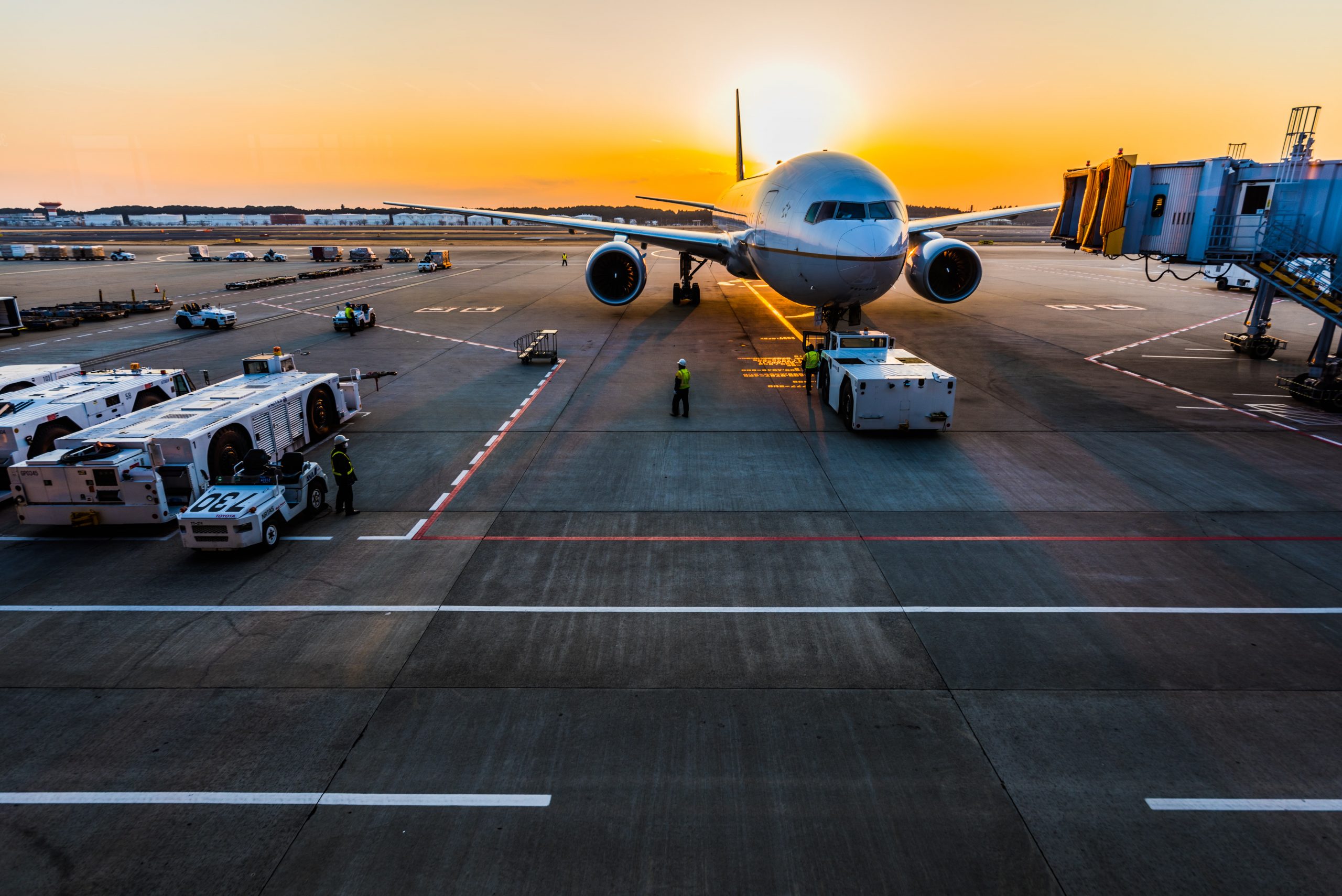The global aviation body has urged governments across Europe to coordinate to lift border restrictions and find alternatives to COVID-19 quarantine measures in order to help save the industry from sinking into a deeper crisis.
“Although the European market has seen an increase in the number of flights in recent months, supported by the reopening of borders between countries of the Schengen Area and the non-Schengen EU states, flights are still more than 50% below the same period in 2019,” the International Air Transport Association said in a recent statement.
Read more: When Is Global Business Travel Expected to Rebound?
IATA estimates that passenger numbers will fall by around 60% this year, which represents about 705 million passenger journeys.
“The near-term outlook erecovery in Europe remains highly uncertain with respect to the second wave of the pandemic and the broader global economic impact it could have,” the group said, adding that it does not expect passenger demand in Europe to reach 2019 levels until 2024.
According to the aviation body, the slower-than-hoped recovery of the industry has put at risk more than 7 million jobs, up from around 6 million estimated in June.
IATA estimates that passenger numbers will fall by around 60% this year, representing about 705 million passenger journeys.
“It is desperately worrying to see a further decline in prospects for air travel this year, and the knock-on impact on employment and prosperity. It shows once again the terrible effect that is being felt by families across Europe as border restrictions and quarantine continue. It is vital that governments and industry work together to create a harmonized plan for reopening borders,” said Rafael Schvartzman, IATA’s regional vice president for Europe.
Analysis of the largest European markets indicates a decline across all metrics since the previous IATA estimates in mid-June. The following table shows the impact estimates for the entire 2020.

Finding Alternatives
IATA stated that the air transport industry has been working closely with regulators, including the International Civil Aviation Organization and the European Aviation Safety Agency to put the necessary protocols in place to maintain the safety of crew and travelers.
“Proof that airlines and airports are already successfully implementing these measures is that the risk of transmission on board remains low. Out of 20 million cases of COVID-19 worldwide, there are less than 50 known cases of transmission on board,” reads the press release.
The group called on governments to look at a coordinated way to lift travel restrictions and find alternatives to quarantine requirements, emphasizing that international cooperation to isolate and precisely manage risks is necessary to restore trust in travel.
“Of crucial importance is the layering of measures as an alternative to quarantine, including the universal implementation of the ICAO biosafety measures, comprehensive contract tracing, and the potential for testing regimes that are fast, accurate, scalable and affordable. As we learn to live with COVID-19, a stop-go-stop approach to lifting restrictions cannot be the answer.”
Read more: COVID-19 Mass Layoffs Brewing in Europe
IATA believes that continued aid and assistance is desperately needed for the aviation sector, which faces a long-haul recovery.
“With recovery to 2019 levels now slipping to 2024, financial support, in forms which do not further load crippling debts onto the industry, will be necessary if an even sharper contraction in airline capacity and jobs is to be avoided. And regulatory assistance is vital,” said Schvartzman.
He added that the European Commission needs to issue an “unambiguous” statement on their intention to provide a full winter-season slot use waiver immediately.
“It is baffling that the commission continues to sit on its hands over the summer, while each day of delay becomes more critical for the future viability of a robust and competitive aviation industry,” the official said.
IATA says the slower-than-hoped recovery of the industry has put at risk more than 7 million jobs.
Joint Appeal
Europe’s major airlines and airport associations had previously expressed their shared concerns over travel restrictions imposed by a large share of European countries.
In a joint letter to leaders in the UK and European Union, the Airports Council International Europe, Airlines for Europe, and IATA appealed to European authorities to reconsider restrictions to travel.
They said they do not see any “valid science-based and proportionate justification for such restrictions from a health policy perspective”.
“Coming at the height of the peak summer season for tourism and travel industries, these restrictions are slowing down the recovery in air traffic and the restoration of air connectivity. They are badly hurting the European economy—and threatening livelihoods,” they noted.







